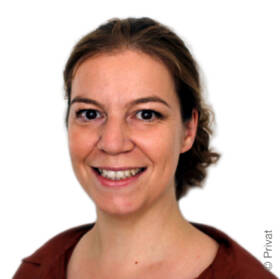A Moodle course to equip students with the tools for upcoming challenges.
Background
Key competencies, Future Skills, or Twenty-First Century Skills—such as critical thinking, problem-solving, and teamwork—are a main pillar for success in virtually every profession (Davies 2011; Dondi 2021; Ehlers 2022). In light of the ongoing digitalization and automation of professional and everyday processes, skills like digital literacy, data analysis, and innovation capability are particularly important (Daniels 2023). Together, these abilities enable university graduates to adapt flexibly to new professional and personal challenges, develop innovative solutions, and contribute meaningfully to society, the economy, and democracy.
Project Content and Objectives
St. Pölten University of Applied Sciences plans to introduce a “Window of Opportunity” in all degree programs, allowing students to explore other fields of study, either at the university itself or at a partner institution within the European University Alliance E³UDRES². The idea behind this is to make study programs less rigid and give students more opportunities to gain experience beyond their own discipline.
A vital part of the new degree programmes is the asynchronous online course “A Scientific Mindset for Citizenship” (flexible and available anytime). It helps students to sharpen their critical thinking, to learn more about the principles of scientific work, and how to draw evidence-based conclusions. It also gives plenty of space to ethics, media literacy, and transcultural skills. On top of that, we work on resilience, a global outlook, and social skills that come in handy in many different contexts.
Methodology
A Scientific Mindset for Citizenship" is offered as a Moodle course with self-paced online units and interactive live webinars. The topics are wide-ranging: from English as a scientific language, digital competencies, media literacy, and data literacy to critical thinking, sustainable lifestyles, ethics in science, democratic citizenship, transcultural and anti-racist awareness, social innovation, and design thinking. The course is interactive and practice-oriented, with modules that students can combine individually. It is held in English and open to all students at St. Pölten University of Applied Sciences. Since "English as a Scientific Language" lays the foundation for all other modules, it is a prerequisite.
References
Daniels, U.-D., Lindner, M., Sommer, S., & Rauch, E. (2023). AICOMP - Future skills in a world increasingly shaped by AI. Ubiquity Proceedings, 3(1), 230-239. https://nexteducation.org/downloads/EdenPaper_AICOMP.pdf
Davies, A., Fidler, D., & Gorbis, M. (2011). Future work skills 2020. Institute for the Future for University of Phoenix Research Institute. https://www.voced.edu.au/content/ngv:49812
Dondi, M., Klier, J., Panier, F., & Schubert, J. (2021). Defining the skills citizens will need in the future world of work. McKinsey & Company, 25. https://hrday.nl/wp-content/uploads/2022/10/JTB.pdf
Ehlers, U. D. (2022). Future skills im Vergleich: Zur Konstruktion eines allgemeinen Rahmenmodells für Zukunftskompetenzen in der akademischen Bildung. https://nextskills.org/wpcontent/uploads/2022/05/2022-01-Future-Skills-Bildungsforschung_final_Vs_2.pdf
Funding
You want to know more? Feel free to ask!
Service and Competence Centre for Teaching/Learning Development and Educational Offers (LEARN)
Dirk Jahn
Marco Behringer


